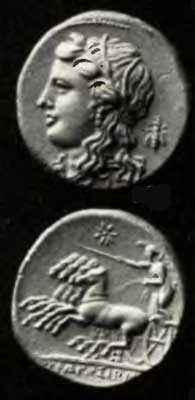|
|
For a long time then, I reflected on this confusion in the astronomical traditions concerning the derivation of the motions of the universe's spheres. I began to be annoyed that the movements of the world machine, created for our sake by the best and most systematic Artisan of all, were not understood with greater certainty by the philosophers, who otherwise examined so precisely the most insignificant trifles of this world. For this reason I undertook the task of rereading the works of all the philosophers which I could obtain to learn whether anyone had ever proposed other motions of the universe's spheres than those expounded by the teachers of astronomy in the schools. And in fact I found in Cicero that Hicetas supposed the earth to move. Later I also discovered in Plutarch that certain others were of this opinion....Therefore, having obtained the opportunity from these sources, I too began to consider the mobility of the earth. Nicholas Copernicus, Letter to Pope Paul III: Preface to De Revolutionibus, 1543
Hicetas (gr. Hiketas)(c. 400 BC – c. 335 BC) was a Greek philosopher of the Pythagorean School. He was born in Syracuse. Like his fellow Pythagorean Ecphantus and the Academic Heraclides Ponticus, he believed that the daily movement of permanent stars was caused by the rotation of the Earth around its axis. This trio of philosophers is reported by Calcidius to have thought that Venus and Mercury revolve around the Sun, not the Earth. ----------------------
Coin during the period of Hicetas, Head of Persephone, Quadriga, Star Text SYRAKOSION Another Hicetas was Tyrant of Syracuse 289/8-280/79.BC ------ Hicetas was also the name of a Tyrant of Leontini Retrieved from "http://en.wikipedia.org"
 |
|
|||||||||||||||||
